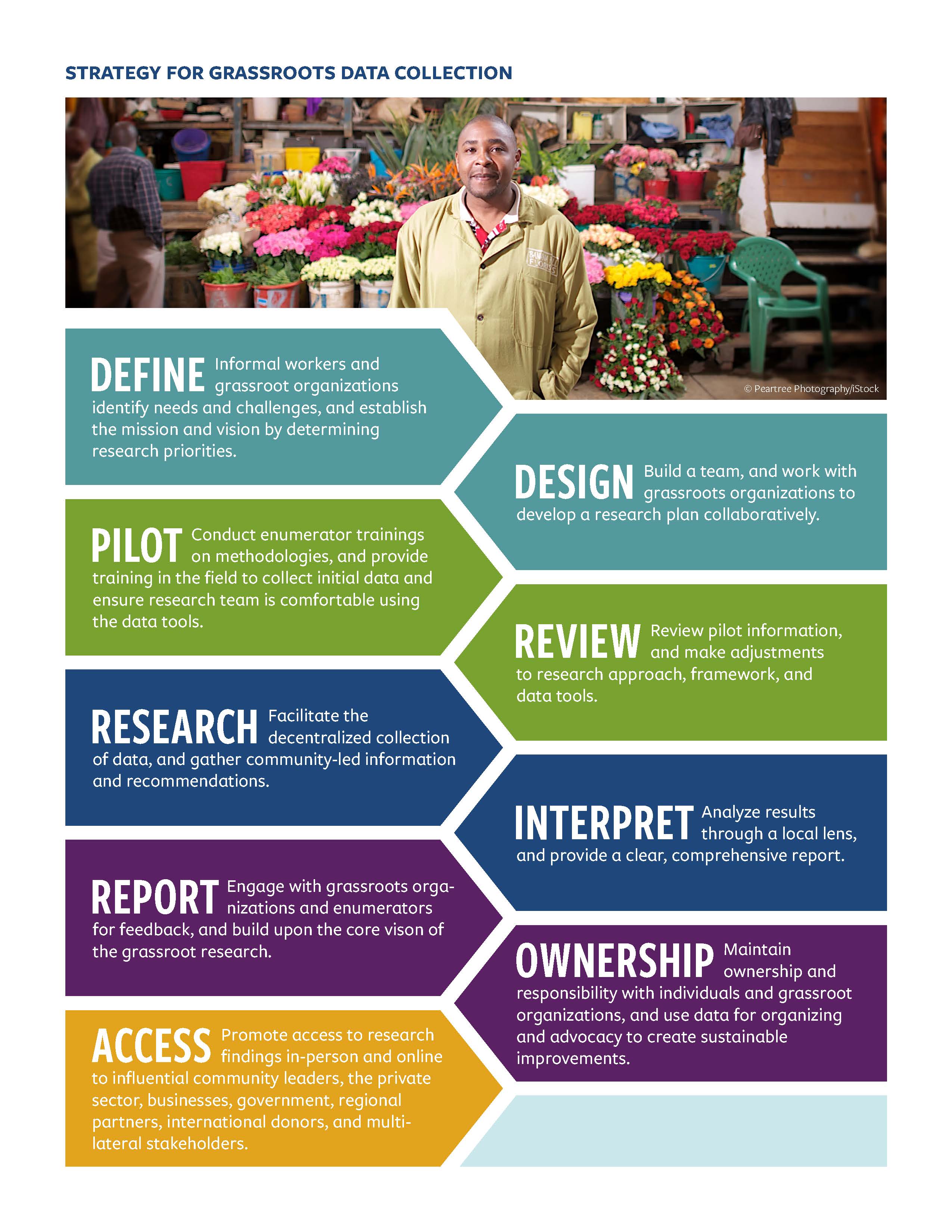Summary
The world of work has been steadily transitioning to a data-driven economy where development priorities, policy advocacy, and socio-economic strategies are being generated and extracted at a high level with minimal input or ownership from worker organizations on the ground. Multiple barriers have prevented informal workers and grassroots organizations from playing a central role, foremost of which has been the limited capacity of the informal sector to collect, assess and disseminate essential information to development advocates and policy-makers.
Global Fairness Initiative believes that local, grassroots-based entities have the right to set the standards for data collection. By working with partners in anchor locations, GFI is instituting a model of data collection that is worker-centric and locally produced and owned. We work within the local context to empower organizations to define key issues and create sustainable solutions rooted in equity and women’s empowerment. With knowledge building being core to the model, we use a bottoms-up, comprehensive Trainer of Trainer (TOT) strategy to augment the internal capacity of community partners, research enumerators, and worker unions.
In collaboration with regional data specialists, grassroots entities have hands-on experience learning and using proper methodologies and research techniques, planning implementation strategies, conducting questionnaires and facilitating focus group discussion, using data collection software, compiling information, and analyzing results to enhance awareness about workers and their rights. This responsive, real-time data is retained by those closest to the issue to provide them with targeted information necessary for effective bargaining power with government and external stakeholders, thus leading to more effective and sustainable changes for workers. Engagement at the grassroots level serves to bridge the ‘data divide’, and engenders local communities to make informed decisions and fosters social and economic development driven by workers themselves.
Global Fairness Initiative believes that local, grassroots-based entities have the right to set the standards for data collection. By working with partners in anchor locations, GFI is instituting a model of data collection that is worker-centric and locally produced and owned. We work within the local context to empower organizations to define key issues and create sustainable solutions rooted in equity and women’s empowerment. With knowledge building being core to the model, we use a bottoms-up, comprehensive Trainer of Trainer (TOT) strategy to augment the internal capacity of community partners, research enumerators, and worker unions.
In collaboration with regional data specialists, grassroots entities have hands-on experience learning and using proper methodologies and research techniques, planning implementation strategies, conducting questionnaires and facilitating focus group discussion, using data collection software, compiling information, and analyzing results to enhance awareness about workers and their rights. This responsive, real-time data is retained by those closest to the issue to provide them with targeted information necessary for effective bargaining power with government and external stakeholders, thus leading to more effective and sustainable changes for workers. Engagement at the grassroots level serves to bridge the ‘data divide’, and engenders local communities to make informed decisions and fosters social and economic development driven by workers themselves.

